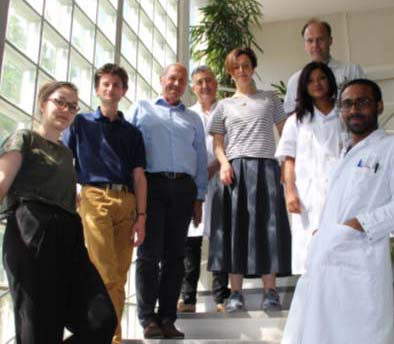- Accueil
- Recherche
- Enfant & adolescent
- Recherche médicale
- DOHAD Research Group
DOHAD Research Group

A worldwide upward trend is observed in the burden of non-communicable diseases (NCDs) with developmental origin such as cardiovascular diseases, obesity, diabetes, hypertension, autoimmune diseases, neurodegenerative diseases, infertility, some cancer types, osteoporosis, depression, schizophrenia and sarcopenia. This field is now recognized as Developmental Origins of Health and Disease (DOHaD). Challenges during the pre-conception, fetal and early postnatal periods of life, such as nutritional and life style imbalances, exposure to toxicants, stress, low socio-economical status, physical increase the risk of developing NCDs. Interactions between the genome and the early environment offer an exceptional window of opportunity for early prevention.
The mechanisms underlying the early programming of health and disease are incompletely understood.
Based on translational approaches combining analyses of human data and samples and rodent models of exposure to unbalanced diet during perinatal life, our group aims
- to characterize the developmentally programmed biological dysfunctions of the cardio-vascular, metabolic, renal and immune systems.
- to unravel the underlying cellular and molecular mechanisms (senescence, apoptosis, oxidative stress,...)
- to identify the molecular bases of the long-term programming (epigenetics)
- to identify sensitive and early non invasive biomarkers of early programmed dysfunctions
- to discover potential therapeutic targets for the phenotype reversal.
Département femme-mère-enfant
Rue du Bugnon 21
CH-1011 Lausanne



